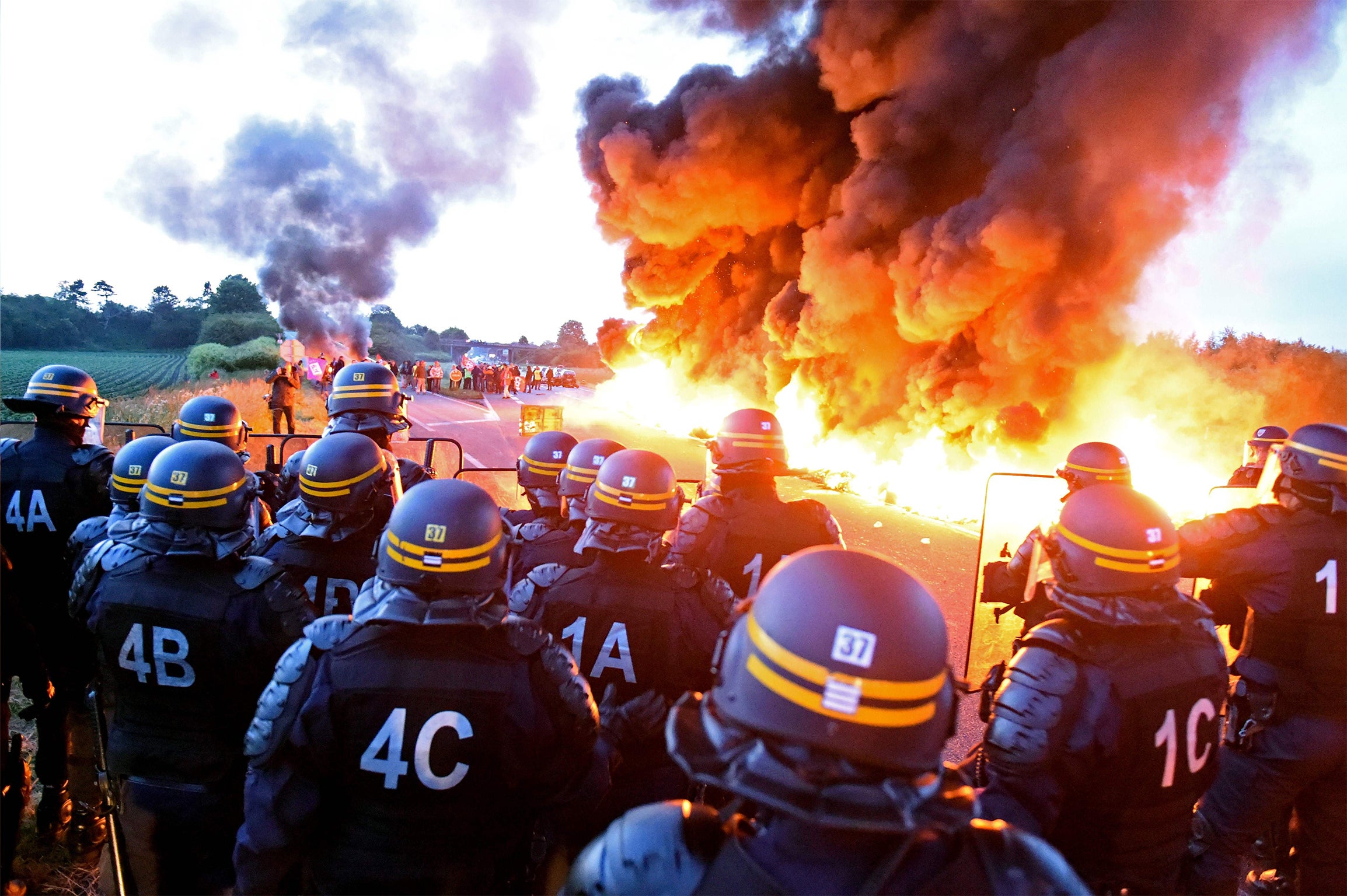French fuel strikes: Government forced to use strategic reserves as labour laws stand-off escalates
Unions are calling on nuclear plants to join the industiral action and are also targeting the nation’s gas reserves and rail network

France has been forced into using strategic fuel reserves for the first time in six years as a stand-off between the government and hardline unions over labour reforms continues to escalate.
On Wednesday, the CGT union federation called for a 24-hour strike at a nuclear plant. The sector provides much of the country’s electricity and workers at other plants have pledged to join the strike action on Thursday. Unions are also targeting the nation’s gas reserves and rail network this week.
Many French citizens now fear the stand-off will mean disruption to the month-long Euro 2016 international football tournament – hosted by France – which is set to begin on 10 June.
Although it is perhaps the strikes at oil refineries which has impacted upon the fuel network - and so the amount of petrol available at the pumps – which has caused the most consternation.
France has used three of its 115 days of fuel reserves to deal with the shortages so far, Junior Minister for Transportation, Alain Vidalies, acknowledged, adding that about 40 per cent of gas stations in the Paris region have been hit by partial or total shortages.
Mr Vidalies said 11 fuel depots have been unblocked by police since the protests against the government's labour policies started last week.
The labour reforms which the government has worked hard to push through aim make it easier for firms to hire and sack workers. The government says it is crucial to fight rampant unemployment stuck at above 10 per cent of the workforce. The CGT says it would dismantle protective labour regulation and undermine workers’ rights.
Other unions back the latest version of the reforms, which have been watered down, but both the CGT and the government have repeatedly said they would not back down – with the government pledging to ensure fuel supplies.
“The CGT does not rule this country,” Prime Minister Manuel Valls told MPs on Wednesday. “We won't withdraw the (reforms).” He dismissed attempts by senior Socialist MP's to broker a small change in the proposed law in an attempt to offer a compromise solution.
CGT chief Philippe Martinez, however, said his union, one of the biggest in France, would press on with its strikes. “We will carry on,” Mr Martinez told France Inter radio.
Francis Duseux, the head of the oil industry federation claimed that that fuel supplies would last around three months.
“At the worst, if the situation remains very tense, we will do this for three months,” Mr Duseux told French radio according to AFP, adding that consumers had “contributed a little” to the problem because they were panic-buying.
“We are all filling our tanks as a precaution because we are afraid, and consumption has multiplied by three times or even five times in some areas,” he said.
Six out of eight oil refineries are said to be wholly or partially blocked, while union members at a major oil terminal in the English Channel port city of Le Havre plan to block imports on Thursday. Total, which operates about a fifth of France's stations, said on Wednesday 348 out of its 2,200 petrol stations were out of stock.
Fouad Rharib and his wife spent hours searching for fuel in La Havre before giving up overnight. He finally found some on Wednesday morning in Paris - along with a long queue.
“Our two cars are on the minimum level of petrol and we need to drive our children to school and to go to work... it is unacceptable,” he told the Associated Press.
For the French public at large, there are fears over the Euro 2016 tournament. A national poll released on Wednesday suggested that a majority of French citizens would blame the government if such disruption should come to pass.
Interior Minister Bernard Cazeneuve insisted on Wednesday that the labour disputes would not jeopardise the upcoming tournament. The tensions have added to concern about security at the event, which is already facing threats of violent Islamic extremism.
Subscribe to Independent Premium to bookmark this article
Want to bookmark your favourite articles and stories to read or reference later? Start your Independent Premium subscription today.

Join our commenting forum
Join thought-provoking conversations, follow other Independent readers and see their replies